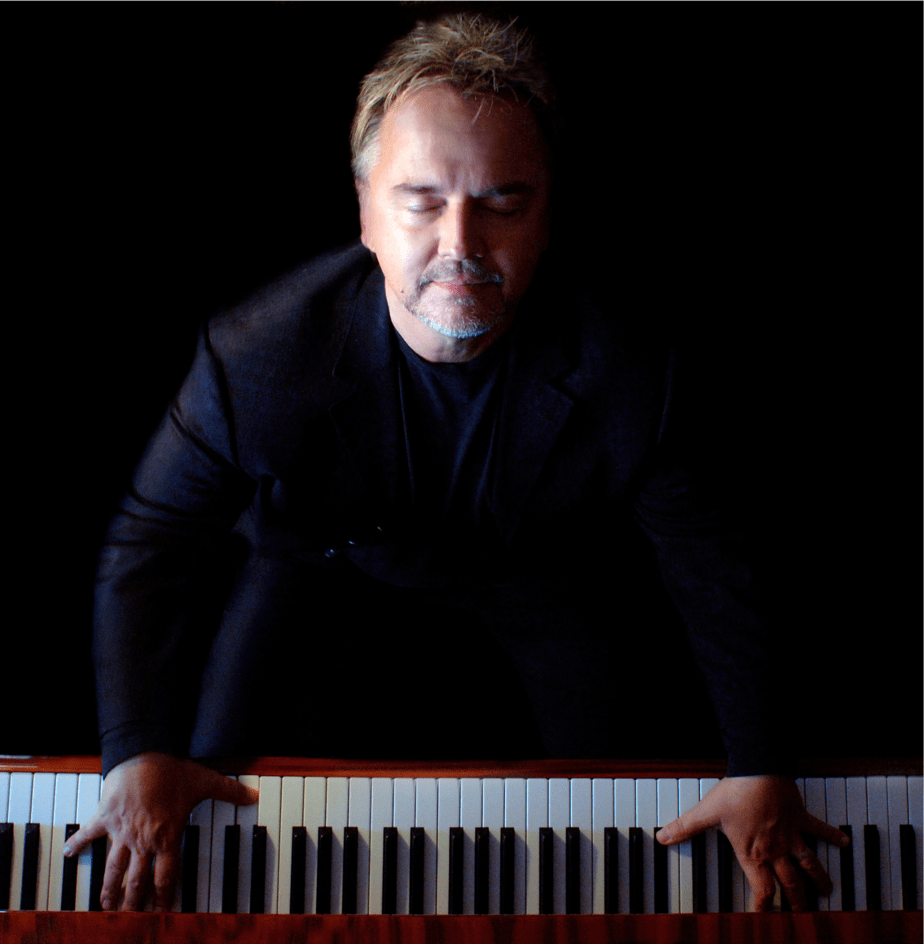Creativity: The Art of Presence
July 26, 2017
I wrote the following about my approach to playing the piano. But I think it’s applicable to any creative endeavor whether it’s music, art, writing, cooking or even moving through your day. It’s about being present, showing up fully, breathing and expressing what you know and listening for what’s next.
I love to improvise. When I’m playing for myself that is mostly what I do. Also about 50% of my live concerts are improvised. When improving I’m just exploring certain ideas for emotions and expressing them without an agenda other than just to explore and express them. I sit a the piano, take a few deep breaths and clear my ahead and I usually get an image in my mind as to where to start. It’s usually a certain key or pattern of notes. Just a beginning. I have no idea where it’s going. It’s only a starting point. I play what I was “shown” and then listen to it. Then I receive another “idea” or “impulse”. Then I play that and again, I listen.
My intention is to respond to each impulse, each spark, fully, without hesitation and then immediately let it go, moving onto the next and the next. When I say “impulse” or “spark” I mean it’s like an “idea flash”. They happen very quickly. It’s a quickly passing thought or impulse. It’s clear but swift and they come one at a time. It’s so important to act and respond to the first initial idea. Because if I don’t express the first impulse without hesitation then immediately following that is a “second guess” doubting the first impulse. I believe that the initial start comes from something higher than my ego mind. You could say that it comes from my Muse, the Universe or God, whatever you want to call it. Or you could call it some kind of guidance or intuition. The “second guess” comes from my ego in fear that the initial spark was incorrect or not good enough. This might sound funny, but I’ve talked to many other musicians (my peers and mentors) about this and they all concur. The first impulse is that “still small voice” that we need to practice listening to. It happens so fast then our egos are so quick to respond with compensating thoughts and distractions. It’s like we want to believe in an ultimate universal perfection and intelligence (call it what you will) but our doubt and fear is sometimes louder and more frequent.
For me, it’s like following a trail of breadcrumbs. I don’t see the whole picture but I know what’s next and next and next. And if my trust and swift response is solid and consistent then it just becomes one continuous inspired pulse. It’s like a series of sparks igniting quickly enough to where the fire starts to burn on it’s own and then I’m just in the experience and expression of that creative flame. Breathing into it. Listening to and witnessing it. Enjoying it as a participant and observer. And it burns and burns until it’s finished. No longer, no shorter.
It’s important not to judge the impulse or spark. Don’t question if it’s the right one. Embrace it, express it and then let it go. Staying present is key to the process. Thinking about the future (the next passage) is just as counterproductive as is lingering on a misplaced note in the recent past. Both are not about the present. Play each note or line with totality and then immediately let it go. Let it go if it’s a perceived mistake or even it it’s perceived genius. It’s over. Let it go. And thoughts invite our egos and separate us from source and take us out of the moment. Something new is presenting itself now. And now. The past of future is not important. What’s important is being present with each note, phrase, nuance and spark of inspiration.
In the past in concerts I would get so flustered and annoyed with myself for making a mistake, hitting a wrong note or chord; I would be thinking about it for seconds and even minutes afterwards. In the past, one mistake would sometimes ruin the whole song for me because I could no longer be present in the song afterwards because I’d be thinking about it or feeling embarrassed. Again, if I’m thinking about something I did a few seconds or minutes ago then I can’t be present with what I’m doing now.
Fortunately now, after many many years of practice in presence (and forgiveness and compassion), I leave an error behind in just a few notes. We all make mistakes. Perfection is a human-made concept that doesn’t really exist. Compassion and forgiveness are actually key attributes to letting go of perceived “mistakes” and staying present with what “is”. This is obviously true both creatively and in life in general.
I also really like to record my improvisations. As a professional musician it’s good to be recording as often as possible. Even if I’m just playing around and improvising for myself. Not only is good to have the recordings to listen back to if something “inspired” happens. But it’s also good to get used to relaxing and playing freely while in “record” mode to help get over the “I’m recording so I better not make a mistake” perspective.
Presence is sometimes harder to achieve when other’s are watching/listening or when something perceived as “special” is going on. So it’s good to practice presence in all kinds of situations, not just the easy ones when we’re alone by our selves. Then it becomes easier to drop into it in any and all circumstances. Enjoy!!


